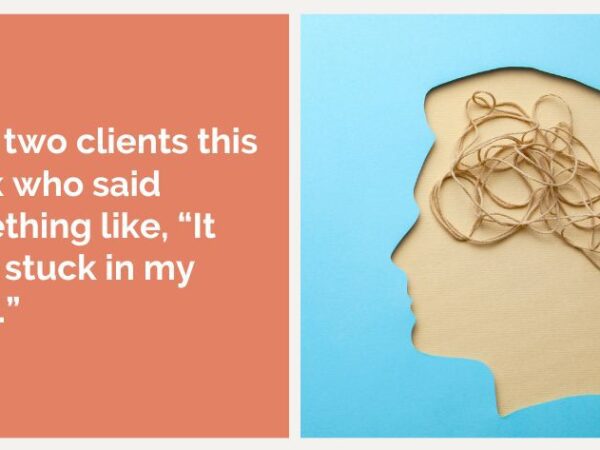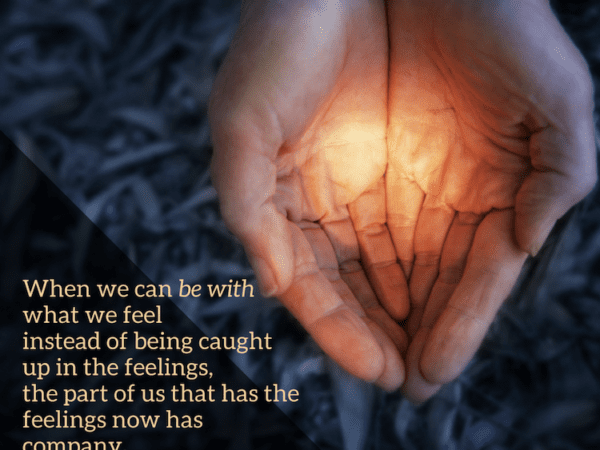"Does radical acceptance mean accepting the hurtful actions of others?"
~~~~~~~~~~~~~~~~~~~~~~~~~~~~~~~~~~~~~~~~~
Carolyn writes: "I don't think this question really comes into the category of a 'focusing tip' but it's perplexing me because it causes doubts in me and affects my ability to trust the process.
"Increasingly I'm able to ease into Focusing better and reach the stage where something shifts and I feel a bit nearer to gaining some insight, relief and understanding. I've become more able to pay attention to all the parts including those with messages I fear and don't want to hear. Through your examples in The Radical Acceptance of Everything as to the way the choice of words can make it possible to listen and attend to these parts, I am very motivated to continue — but something is causing me some niggling doubts.
"When I accept all the parts of myself, I have the disturbing thought that this must apply to everyone, including those who have harmed me, been cruel etc. It brings me back to the disturbing conclusion I had largely managed to get away from… that there is something wrong with me, I am to blame, and so on for all the awful things that happened to me. If they 'have their reasons' for their actions, these must be as valid as mine in being adversely affected by them.
"If there is a reason for everything and healing involves total acceptance, does this also apply to evil when it seems to be carried out for its own sake?"
Dear Carolyn,
I am so sorry to hear that you were harmed so much that you would ever have the thought that any of that was your fault. It was not…. as I know you know, really, when you are being Self-in-Presence. And I feel grateful that Focusing is bringing you insight, relief, and understanding.
Thank you for giving me an opportunity to explain something very important about "The Radical Acceptance of Everything." It refers to acceptance of everything inside us… our feelings and the partial selves that may be carrying those feelings. Taking action is a different story. Not all actions are OK. We don't have to, and in fact we don't, accept all actions. Some actions are enhancing to life and others are the opposite.
You can accept a part of you that wants to do something hurtful to you or others but that is not the same as allowing that part to take action. When you are Self-in-Presence, you listen to all your parts but you choose the actions you take.
A person abusing a child is acting on an addiction. We can see what led to that person having that addiction, and even have compassion for the pain they must have gone through in the past. But none of that means that the action of abusing the child is in any way acceptable. It is not. And if that person remains in vociferous denial of their responsibility for their behavior, instead blaming it on others, that becomes what we can start calling evil. (I like Scott Peck's definition of evil. You can read more about it here.)
A Focusing type of morality that is body-based
Many of us think of "morality" as something imposed from without. Some systems of morality call the body's wisdom into question, and state that body sensing cannot be trusted as a guide to moral behavior.
Focusing lets us begin to form a type of morality that is based on the wisdom of the body. When a child is hurt, the child's body knows that this hurting is wrong — "wrong" in the sense that it is not what the body implied.
Without the concept of felt sensing, people saw the body as primitive, emotional, untrustworthy. Focusing opens up a way of understanding the body process as worthy of trust. This is not the same as saying that every feeling or impulse can be trusted. Rather, we are saying that there is a kind of body sensing that has the body's wisdom, not only about what we individually need but even about what is right for our families, communities, and our planet.
We are woven into each other through the shared body-environment process. If we tune into this, we can sense what would be right for the whole. People merged with addictive processes can't or don't sense at this level. But when we shift our awareness to Self-in-Presence, we can sense beyond ourselves by sensing within.
Since this way of sensing is possible, I believe it is right to do it! But don't just go by what I say — you can sense it for yourself.



